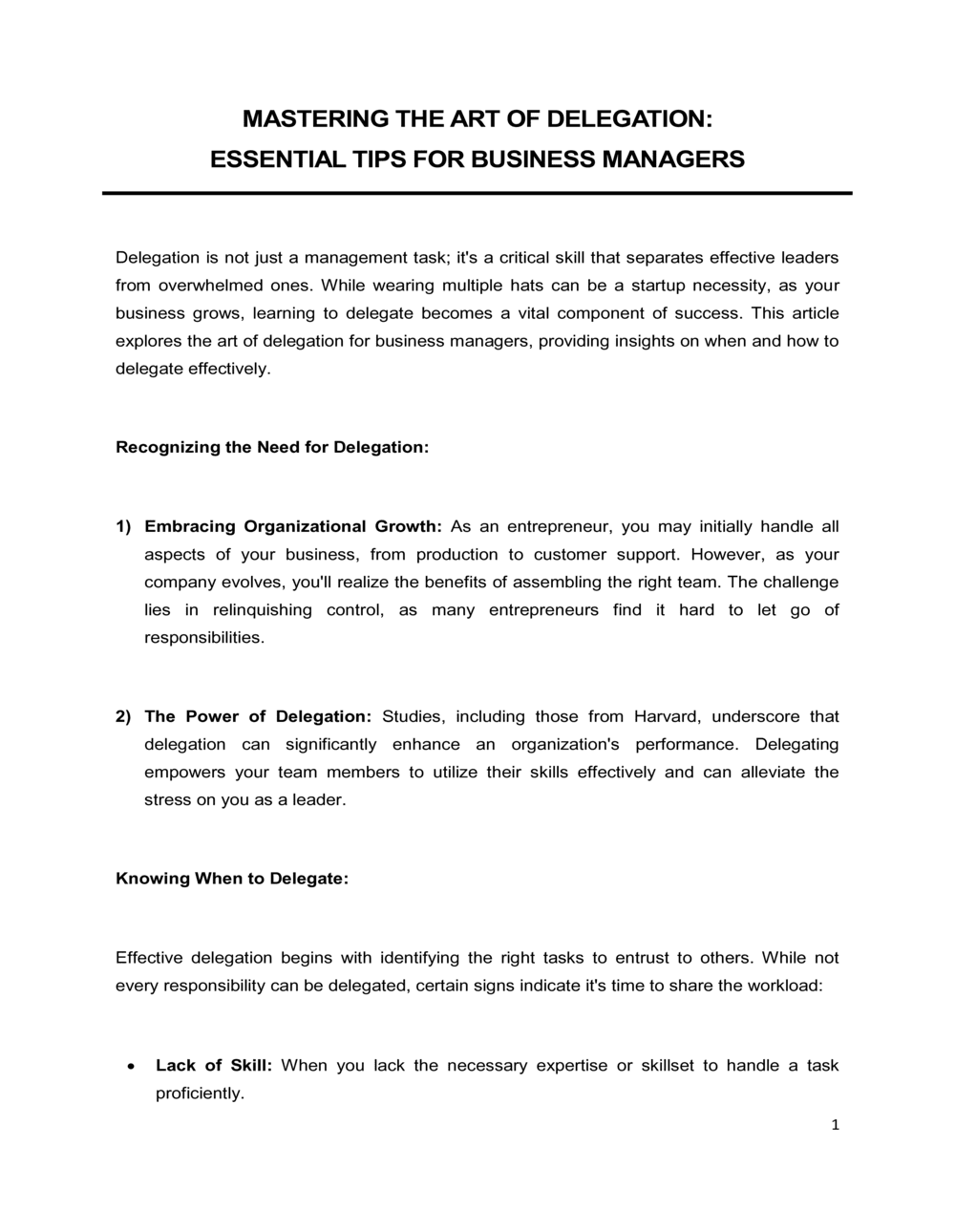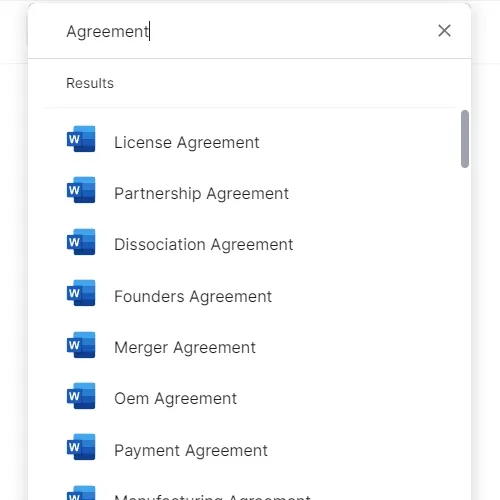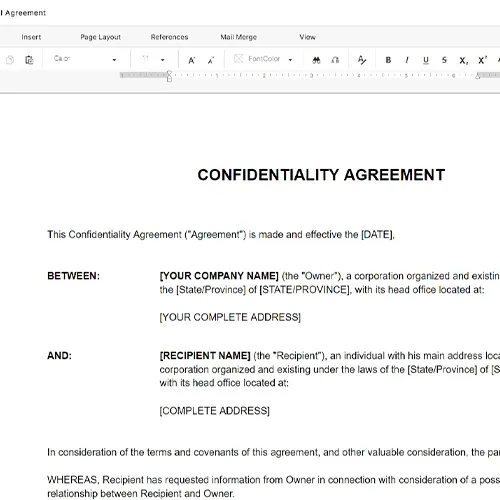Delegation Tips For Business Managers Template

Document content
This delegation tips for business managers template has 3 pages and is a MS Word file type listed under our human resources documents.
Sample of our delegation tips for business managers template:
MASTERING THE ART OF DELEGATION: ESSENTIAL TIPS FOR BUSINESS MANAGERS Delegation is not just a management task; it's a critical skill that separates effective leaders from overwhelmed ones. While wearing multiple hats can be a startup necessity, as your business grows, learning to delegate becomes a vital component of success. This article explores the art of delegation for business managers, providing insights on when and how to delegate effectively. Recognizing the Need for Delegation: Embracing Organizational Growth: As an entrepreneur, you may initially handle all aspects of your business, from production to customer support. However, as your company evolves, you'll realize the benefits of assembling the right team. The challenge lies in relinquishing control, as many entrepreneurs find it hard to let go of responsibilities. The Power of Delegation: Studies, including those from Harvard, underscore that delegation can significantly enhance an organization's performance. Delegating empowers your team members to utilize their skills effectively and can alleviate the stress on you as a leader. Knowing When to Delegate: Effective delegation begins with identifying the right tasks to entrust to others. While not every responsibility can be delegated, certain signs indicate it's time to share the workload: Lack of Skill: When you lack the necessary expertise or skillset to handle a task proficiently. Others Are Better Equipped: When someone within your organization possesses superior skills or knowledge for a particular task. Time Constraints: When your schedule is overwhelmed, and you struggle to manage your existing workload. Shifting Priorities: When more urgent or critical priorities demand your attention.
3,000+ Templates & Tools to Help You Start, Run & Grow Your Business

Document content
This delegation tips for business managers template has 3 pages and is a MS Word file type listed under our human resources documents.
Sample of our delegation tips for business managers template:
MASTERING THE ART OF DELEGATION: ESSENTIAL TIPS FOR BUSINESS MANAGERS Delegation is not just a management task; it's a critical skill that separates effective leaders from overwhelmed ones. While wearing multiple hats can be a startup necessity, as your business grows, learning to delegate becomes a vital component of success. This article explores the art of delegation for business managers, providing insights on when and how to delegate effectively. Recognizing the Need for Delegation: Embracing Organizational Growth: As an entrepreneur, you may initially handle all aspects of your business, from production to customer support. However, as your company evolves, you'll realize the benefits of assembling the right team. The challenge lies in relinquishing control, as many entrepreneurs find it hard to let go of responsibilities. The Power of Delegation: Studies, including those from Harvard, underscore that delegation can significantly enhance an organization's performance. Delegating empowers your team members to utilize their skills effectively and can alleviate the stress on you as a leader. Knowing When to Delegate: Effective delegation begins with identifying the right tasks to entrust to others. While not every responsibility can be delegated, certain signs indicate it's time to share the workload: Lack of Skill: When you lack the necessary expertise or skillset to handle a task proficiently. Others Are Better Equipped: When someone within your organization possesses superior skills or knowledge for a particular task. Time Constraints: When your schedule is overwhelmed, and you struggle to manage your existing workload. Shifting Priorities: When more urgent or critical priorities demand your attention.
Easily Create Any Business Document You Need in Minutes.

Access over 3,000+ business and legal templates for any business task, project or initiative.

Customize your ready-made business document template and save it in the cloud.

Share your files and folders with your team. Create a space of seamless collaboration.
Templates and Tools to Manage Every Aspect of Your Business.
Business in a Box Covers Every Business Department
Includes 16 Types of Business Documents You Need
and Achieve Your Business Goals Faster.
